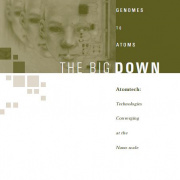Broken Promise? Monsanto Promotes Terminator Seed Technology
Submitted by ETC Staff on
At its annual meeting on Thursday, April 24th 2003, Monsanto's top brass will greet shareholders with a dismal financial report, (a 15% drop in annual sales - $4.7 billion in 2002, down from $5.5 billion in 2001) and a shareholder resolution that urges the company to re-think the safety of genetically engineered seeds - now the company's flagship product. But there's potentially more troubling news - a little known position paper that could rattle shareholders, irk investors and erode public confidence still further in the biotech behemoth: Despite its 1999 pledge not to commercialize Terminator technology, Monsanto has recently adopted a positive stance on genetic seed sterilization, a technology that has been condemned by civil society and some governments as an immoral application of genetic engineering.

